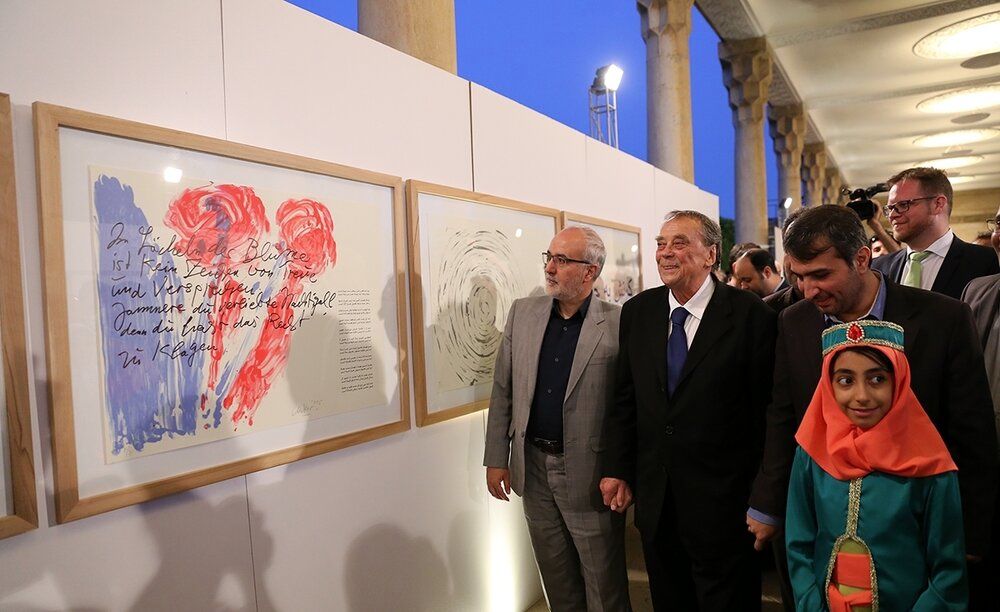Goethe Museum Düsseldorf next stop for Gunther Uecker’s “Tribute to Hafez”

TEHRAN –(Iranart)- Iran’s Visual Arts Office director Hadi Mozaffari has said that the Goethe Museum Düsseldorf will be the next place to host German sculptor and op artist Gunther Uecker’s exhibition “Tribute to Hafez”.
The exhibition is scheduled to open on May 28, and will also showcase sculptures and sets of installation by Iranian artists Mohammadreza Yazdi, Ali Mahbubi, Morteza Tavassoli, Shahriar Rezai, Babak Montazeri, Arefeh Arad, Farzad Dashti and Neda Ayati.
The artists are from the Iranian cities of Tehran, Shiraz, Isfahan, Kerman, Bushehr, Kish, Mashhad and Rasht, which have hosted the exhibition since 2016.
The 89-year-old Uecker and the artists were first scheduled to attend the opening ceremony, which was canceled due to the COVID-19 pandemic.
Mozaffari said that media in Germany, Austria and Switzerland are scheduled to organize a virtual tour of the exhibition.
“Tribute to Hafez” has been inspired by the ghazals of Persian poet Hafez. Uecker has created a collection of graphical works in which the ghazals are transformed into colors and the sound of the poems into written images.
This method to translate spoken language into pictorial expressions has characterized the artist’s oeuvre since the 1970s.
In 2016, Uecker first displayed his collection in Shiraz where the Mausoleum of Hafez lies. The Imam Ali (AS) Religious Arts Museum in Tehran, Isfahan Museum of Contemporary Art and Kerman Museum of Contemporary Art hosted the exhibition afterwards.
Uecker is a member of the ZERO movement, best known for his signature use of nails arranged into tactile, sculptural paintings.
His oeuvre includes paintings, art objects and installations as well as stage designs and films. He is mainly interested in the Eastern European avant-garde of the 1920s and 1930s, but he is likewise fascinated by Asian cultures and their ideas.
Uecker’s works can be seen in collections and at large fairs in both the West and the East. His artistic creativity reached a climax in 2000 with the prayer room he designed for the rebuilt Reichstag building in Berlin.
The Goethe Museum Düsseldorf is one of the three major Goethe archive and research centers.
source: Tehran Times

